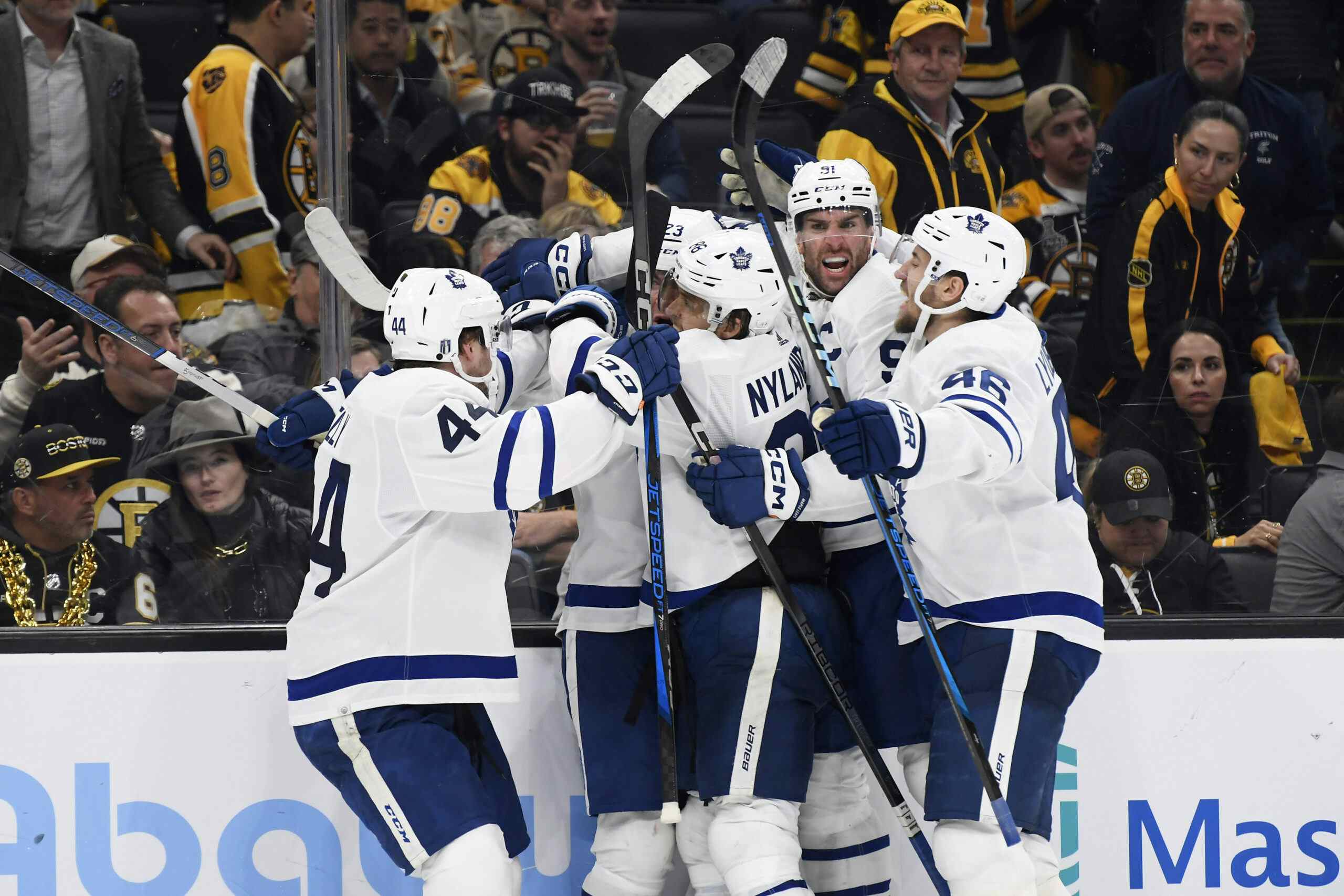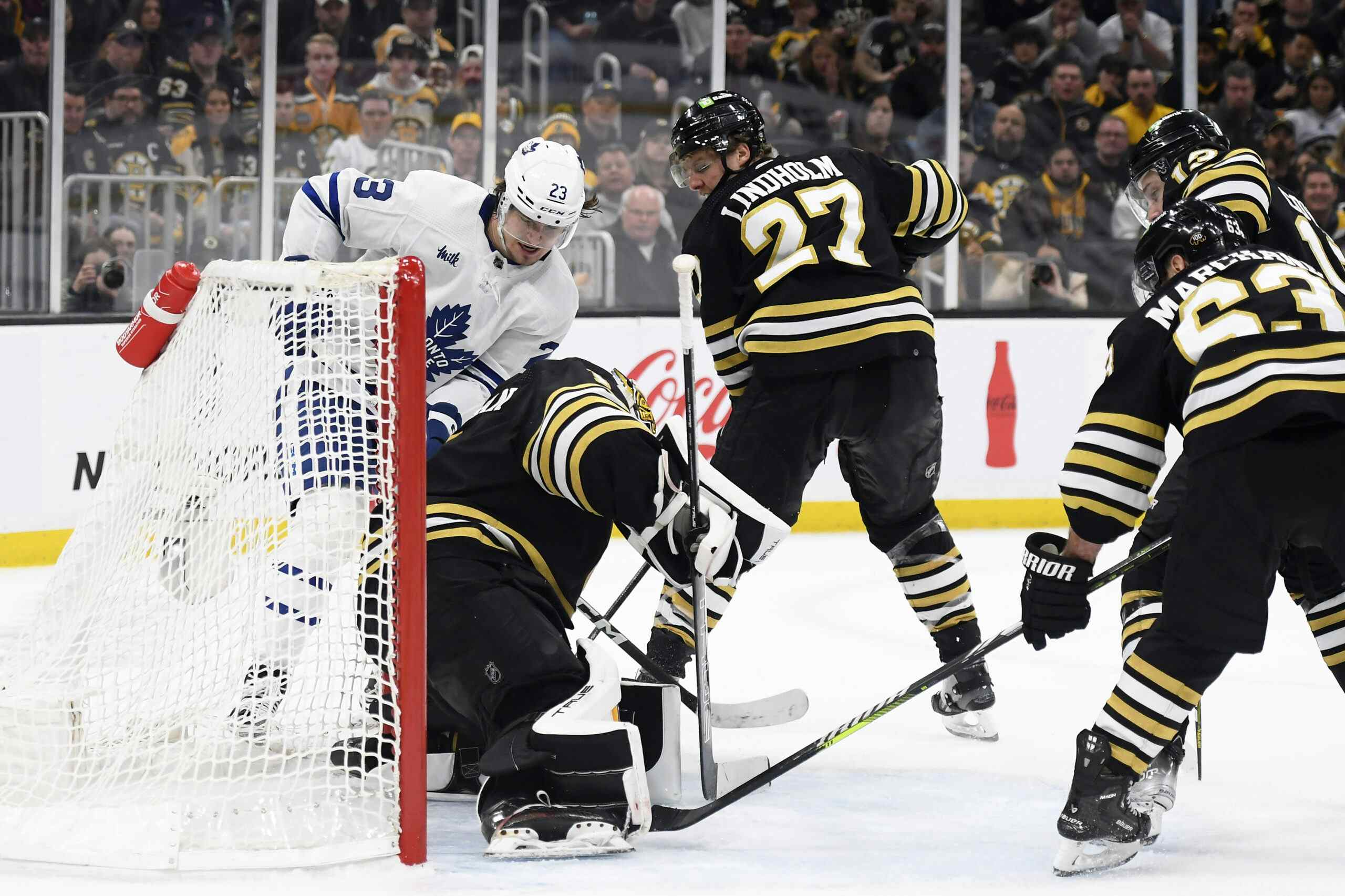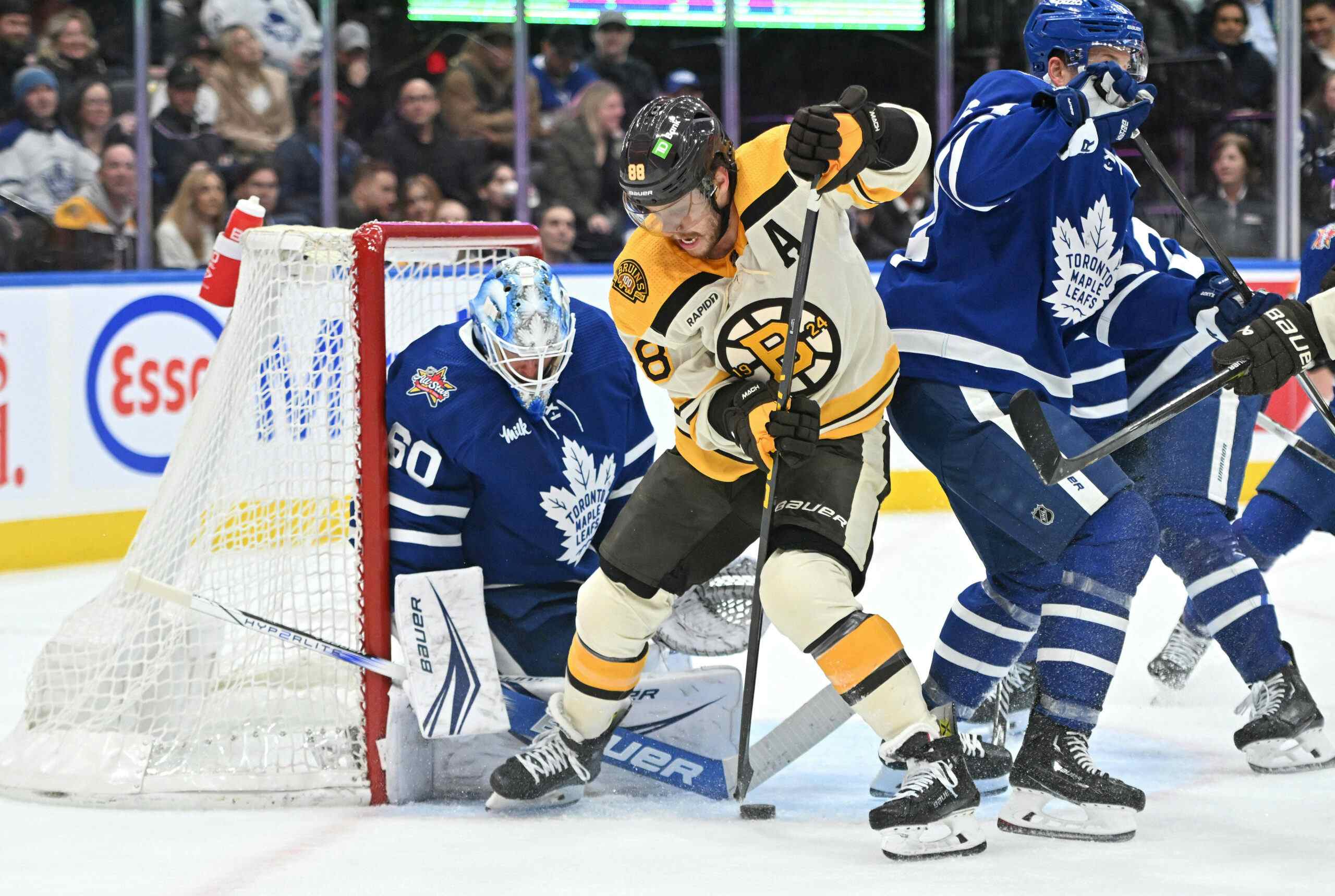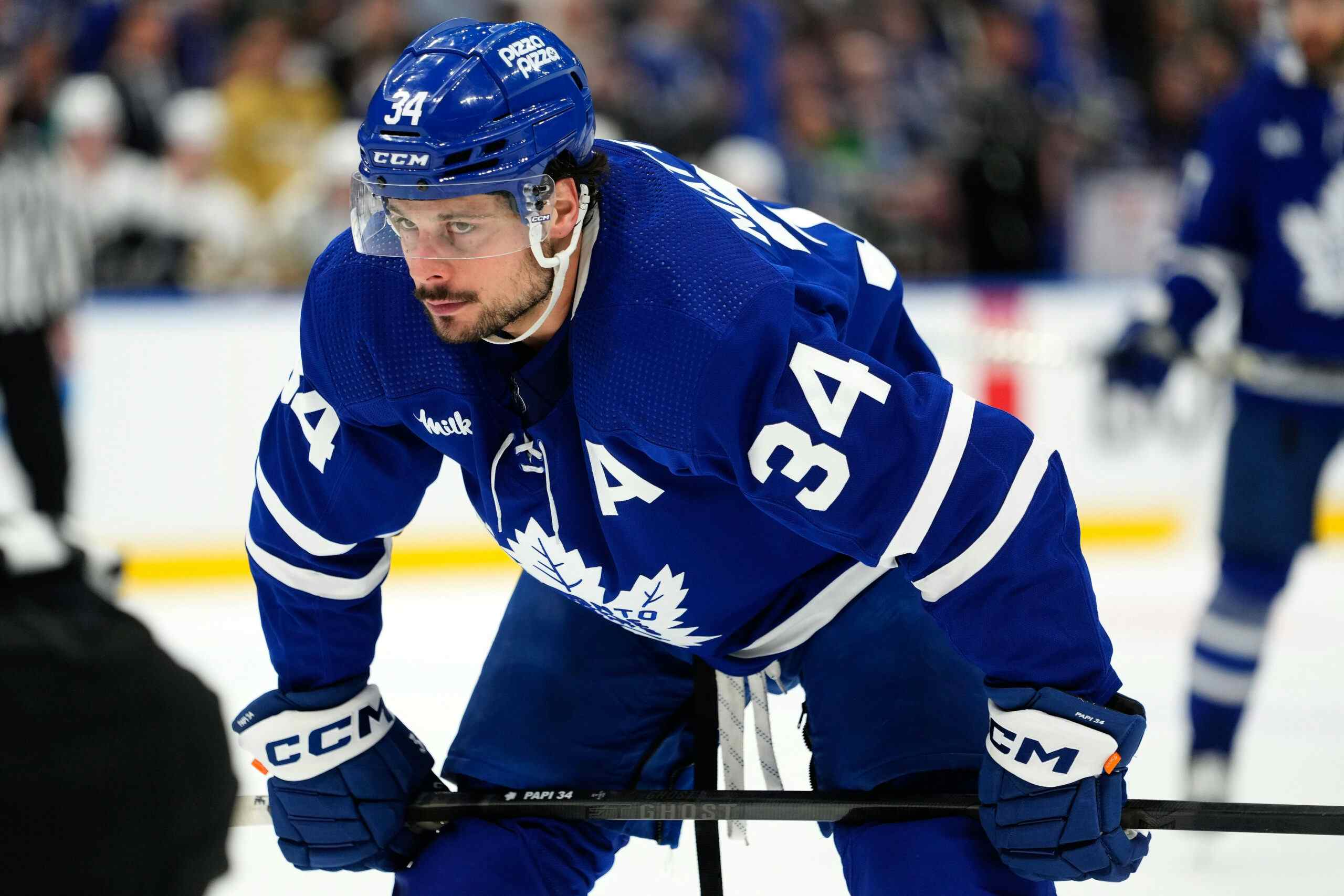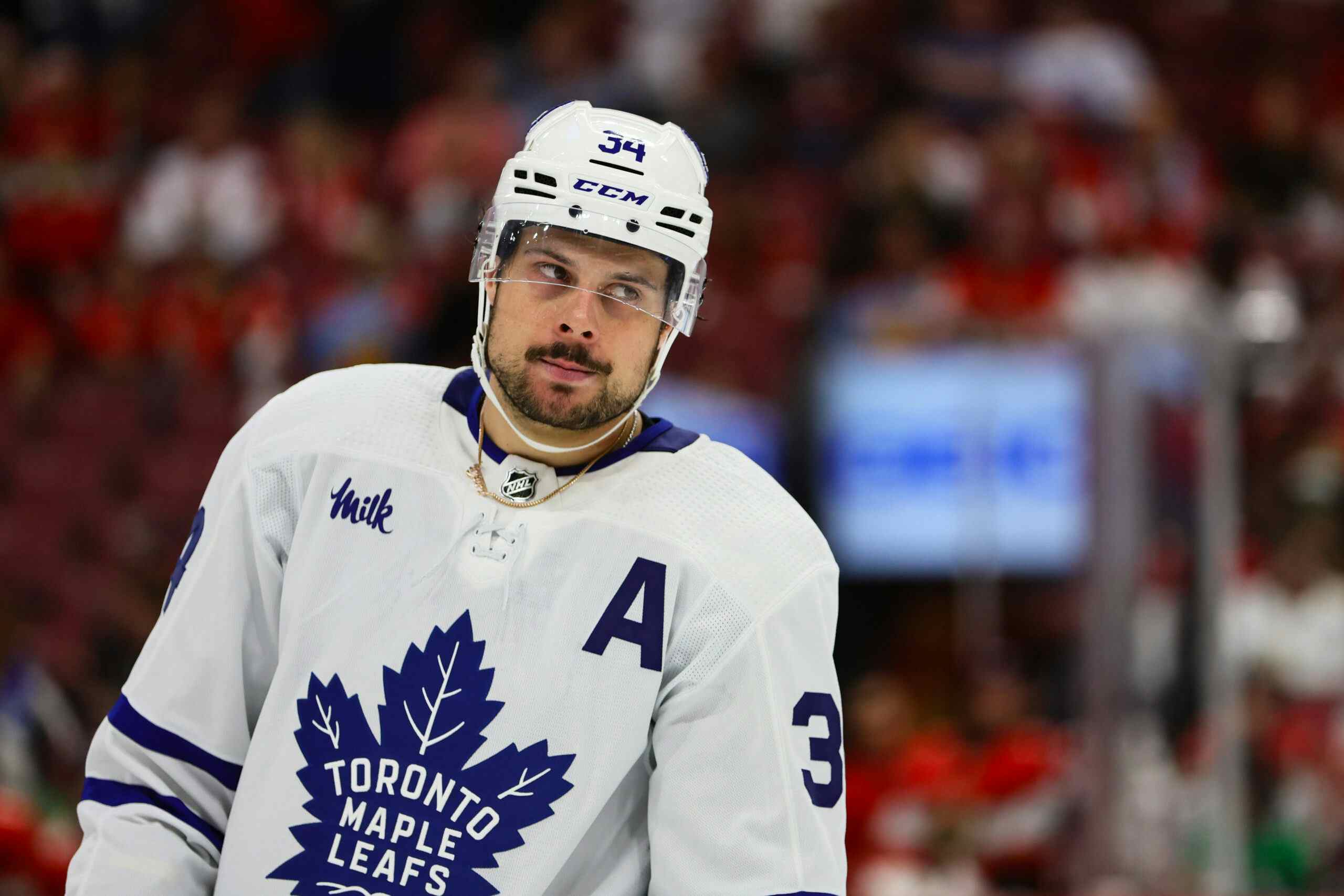What is (and isn’t) concerning about Auston Matthews’ contract process

Photo Credit: Timothy T. Ludwig/USA TODAY SPORTS
It is now July 21st, and the Toronto Maple Leafs still haven’t signed Auston Matthews to his Entry Level Contract. Naturally, there’s been a bit of concern in Toronto about this fact, seeing as winning the lottery and drafting the kid from Scottsdale is the only supreme, unasterisked bright spot the fanbase has had in this generation of Leafs hockey.
Those concerns were amplified last night, thanks to Kevin McGran’s article “Leafs’ Lamoriello balks at bonus demands of Auston Matthews“. Now, I think that title paints Matthews in a negative light that it shouldn’t, but most newspaper titles aren’t the decision of the author, so we’ll pass on going after Kevin for it and jump straight into the content, which seems to add credence to the theory that we’ve all been speculating on.
From the article:
“This one, to me, feels foolish,” an NHL source not involved in the talks told The Star. “I don’t know what Lou’s reward is if he wins for the amount of risk you take by going this direction.”The Leafs not only risk alienating Matthews and his camp — souring future talks when Matthews will have more leverage — but they may be sending a negative message to players around the league about how the team treats stars, he said.“I hope Lou’s not holding his breath,” said an executive with a rival club. “I’ve got a lot of respect for Lou, but I would not be wagering the house on (the Leafs) being able to hold that line.”
McGran goes on to suggest a bunch of things in the next few paragraphs, from the Schedule B bonuses having the most weight, to grim possibilities like this making a second contract’s negotiations more aggressive, or a total holdout which sees Matthews head to Europe for four years before making his NHL debut as a newly-signed unrestricted free agent at the age of 23. With all of this considered and more, here are my concern levels for the process, as it stands right now.
Signing Date
Concern Level: Lukewarm
Here are the dates that every first overall pick in the salary cap era signed their entry level contracts.
| Year | Player | Date |
|---|---|---|
| 2016 | Auston Matthews | TBD |
| 2015 | Connor McDavid | July 3rd, 2014 |
| 2014 | Aaron Ekblad | September 3rd, 2014 |
| 2013 | Nathan Mackinnon | July 9th, 2013 |
| 2012 | Nail Yakupov | July 23rd, 2012 |
| 2011 | Ryan Nugent-Hopkins | July 2nd, 2011 |
| 2010 | Taylor Hall | July 5th, 2010 |
| 2009 | John Tavares | July 15th, 2009 |
| 2008 | Steven Stamkos | July 30th, 2008 |
| 2007 | Patrick Kane | July 25th, 2007 |
| 2006 | Erik Johnson | May 14th, 2007 |
| 2005 | Sidney Crosby | September 9th, 2005 |
| 2004 | Alex Ovechkin | August 6th, 2005 |
As you can see, many of these players went into mid to late July without signing their deals. There are four players who break through July entirely, but they all have outlier situations. Ovechkin and Crosby had their signing dates impacted by the 2004/05 Lockout; Ovechkin signed two weeks after the deal had been ratified, and Crosby wasn’t even drafted until July 30th. Erik Johnson played a year of college hockey before jumping to the NHL, which prevented him from signing a deal.
As for Ekblad, while it wasn’t made to be a big deal, the Panthers were non-committal about him making the team until training camp, so it’s not overly surprising that a budget team had considered holding off on an ELC for a player that might not have been playing in the NHL that year. This is the same reason I shy away from using William Nylander and Mitch Marner as examples; there’s no rush to get a deal done when you’re near certain that the player isn’t going to play for you next year. At that point, it’s just the signing bonus that matters to them. Then again, Luke Schenn, the last first rounder to make the Leafs in his Draft+1, signed his deal just before opening night.
So, I wouldn’t use the extreme examples as proof that the Leafs have lots of time, given that there isn’t a lockout and that Matthews will definitely be on the Leafs. But the Kanes, Stamkoses, and Yakupovs of this list give you reason to not be worried much.
Battle over Dollars
Concern Level: Quite High
Lets swap out the date column of that chart and add a few more in its place.
| Year | Player | Salary | Bonuses | %Max |
|---|---|---|---|---|
| 2016 | Auston Matthews | TBD | TBD | TBD |
| 2015 | Connor McDavid | 925000 | 2850000 | 100 |
| 2014 | Aaron Ekblad | 925000 | 2850000 | 100 |
| 2013 | Nathan Mackinnon | 925000 | 2850000 | 100 |
| 2012 | Nail Yakupov | 925000 | 2850000 | 100 |
| 2011 | Ryan Nugent-Hopkins | 925000 | 2850000 | 100 |
| 2010 | Taylor Hall | 900000 | 2850000 | 100 |
| 2009 | John Tavares | 900000 | 2850000 | 100 |
| 2008 | Steven Stamkos | 875000 | 2850000 | 100 |
| 2007 | Patrick Kane | 875000 | 2850000 | 100 |
| 2006 | Erik Johnson | 850000 | 2850000 | 100 |
| 2005 | Sidney Crosby | 850000 | 2850000 | 100 |
| 2004 | Alex Ovechkin | 984200 | 2850000 | 100 |
This is why I think it’s ridiculous to label this negotiation process as “Matthews’ bonus demands”, rather than “Lamoriello’s hold out”. Ever since this bonus structure was written into the Collective Bargaining Agreement, every single first overall pick has maxed out their salary and their performance bonus. Every last one.
Why? Because first overall picks, by and large, are good at hockey right away. Johnson and Yakupov are probably the only two players who didn’t immediately have roster impacts worth $4 million. Most of these players were superstars before their deals ended; Ovechkin and Crosby were the two best players on earth by opening night of Year 2 and have stayed since, only to have their spot threatened by McDavid likely being the best player in the world starting this year, the second year of his ELC.
Making the implication to a player that he’s selfish for asking for the same deal that has existed for players in his situation for the past dozen years is insane, especially when almost all of these players were grossly underpaid by the end of them.
Lou’s Principle
Concern Level: It’s 2016, fam
There are two trains of thought going around involving Lamoriello’s thought process. One is his general rule with entry-level contracts; that the idea of performance-driven bonuses encourage a player to be selfish for the sake of a payday. The other is setting a precedent – if Matthews, the future face of the team, can put the blue and white ahead of himself, why shouldn’t everybody else?
I don’t think either of these points are fair to Auston, and might just be a bit out of touch. For starters, players don’t get to first overall pick level by being selfish, and if the Leafs really felt that Matthews was the type of player that would make costly mistakes for the sake of getting himself an extra assist, they wouldn’t have signed him.
Are there situations where a big individual night might change the course of his balance sheets? Sure; just ask Taylor Hall and Justin Schultz, who worked together on a goal in a meaningless game to both get their Schedule B requirements fulfilled. But even that one, despite what was at stake, seemed more like circumstance than a grand plan to get on the scoresheet; the Edmonton media are more than happy to jump on anything yet had no accusations for that night.
As for setting an example, I get that idea. But I doubt the Leafs expect to be at the negotiation table with another first overall pick in the next several years, given that they didn’t expect to be here this year, where the team was noticeably worse than the one expected to be hitting the ice in October. Lower picks don’t exactly ask for the max. With that in mind, you’re basically asking an 18-year-old to take a 50-75% paycut on their first ever NHL contract so that older players who have already been paid before are more considerate at the negotiating table for their next details.
I get the concept, I do, but I think it’s unfair to make him the martyr for this situation.
Could Auston run off?
Concern Level: Hahahahahaha
Let’s be real. There is absolutely no way Matthews is running off to Europe and waiting out the clock because of these bonuses. People will point to him playing his Draft year in Switzerland, but that was a matter of improving the quality of competition for the sake of his development, not a search for a payday. There is no quality of competition greater than the NHL, so assuming he has the same long-term principles in mind, he won’t run off over performance bonuses.
Even if this was purely about money, every league other than the KHL would have trouble reaching even his base salary, and the KHL has trouble actually paying the salaries they promise. Not to mention, he’d have to come back to the NHL eventually, so unless he planned on leaving for more than just the four years to become a UFA, he’d still have to sign an entry-level with someone. He has more money to gain by playing without bonuses and getting a better second contract than he does taking the short-term injection.
I don’t know why I gave that two paragraphs of thought, though. The idea is ridiculous. If the Leafs wanted to wait out Matthews, he’d cave. The issue isn’t whether it’s possible, it’s whether it’s right of them.
The General Vibe
I don’t like this situation any more than I did a few weeks ago. I think it’s unfair to Auston Matthews to expect him to take less money for the sake of sending a message to others, especially when even a max Entry-Level Contract has a high chance of underpaying him.
But I’m not at the panic stage yet. It’s still the third week of July, and Matthews would likely rather play here without bonuses than head to Europe. He wouldn’t be happy about the situation if that’s what it came down to, but I can’t see him being anywhere but Toronto next year.
Ultimately, I think this draws out for a few more weeks, but the Leafs end up making an “exception for an exceptional player”. He’ll get the max, just like everyone else, and we’ll move on with our lives. If I had to guess, the bonus structure will allow him to “focus on being part of the team”, and by that I mean every stipulation will be based on total games played or have an incredibly low barrier-to-entry so he can stop worrying about them sooner than later in the year.
But hey, who doesn’t love a good panicked frenzy?
Recent articles from Jeff Veillette

